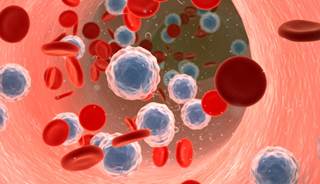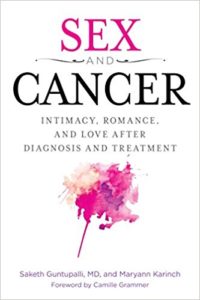Leave a Comment:
11 comments
[…] Multiple Myeloma, Sex and an ASCT […]
Reply[…] Multiple Myeloma, Sex and an Auto SCT- […]
Reply[…] myself short, long-term and late-stage side effects including accelerated aging. Further, while “endocrine disorders” are not the same as “accellerated aging”, the point of the article linked below […]
Reply[…] Multiple Myeloma, Sex and an Auto SCT- […]
Reply[…] myself short, long-term and late-stage side effects including accelerated aging. Further, while “endocrine disorders” are not the same as “accellerated aging”, the point of this linked post is that […]
ReplyHi Renee-
I see that you have registered to watch the MM CC webinar. If you watch the webinar and decide that you would like to order the MM CC program you can use the coupon code “webinar” to buy either the basic or premium program for $100 off. If you sign up for the premium package I include a consultation to discuss your situation. Thanks, David
ReplyHi David, it is amazing and inspiring to read your lines, full of hope and greatness. I really like to hear people fighting and winning this monster called MM.
Im 33, and my mom was diagnosed last july at 65. It was a horrifying experience the “before-diagnosis” weeks. She has been always active, even more than me. Always had good health. From one day to another, eveyrthing changed. Suddenly she had trobule walking. The next day she couldnt walk. The next day she was on a wheelchair. And so on… A few days later, many thousands spent, and after every single imaging and blood test on the hospital arsenary, she was diagnosed with Free Light Chain MM on july 24th, and also with 30% of plasmatic cells according to a bone marrow biopsy. Every other test was normal.
Treatment started on august 1st, with 16 weeks of Bortezomib-Talidomide-Dexamethasone. Eight days later, she had a deep vein thrombosis due to a blood clot caused by the thalidomide. We rushed to E.R. where they gave anticoagulants for 4 days. They changed the aspirin she was taking to something stronger, a.k.a. Clexane. At the end of week #15, lab tests were repeated, same as bone marrow. Free light chains were back to normal, and the new bone marrow biopsy showed ZERO cells.. yey!! that was on november 1st.
By that moment she was offered the option of the SCT. After some research of its side effects and damage it causes to the body, she refused to do it. So her doctor gave her another 8 weeks of the same drugs, as consolidation therapy. The last one is tomorrow.
After that, my mom will be under bortezomib every 2 weeks, as maintenance. She is also taking vitamins and many supplements that fight cancer.
What do you think? I need her to live many more years. Prayers and hope are already with her. She is everything to me. Please let me know your advies and recommendations.
Looking forward to hear from you
ReplyHi Julio,
I am sorry to read of your mom’s MM diagnosis though it is great to learn that she is in complete remission. Low-dose maintenance therapy such as bortezomib/Velcade, has been shown to increase overall survival in MMers. I agree with your mom living an evidence-based anti-MM life through supplementation. There are a number of supplements shown to enhance the efficacy of bortezomib. These are called “integrative” therapies and can lengthen overall survival.
I would encourage your mom to also eat an anti-MM diet, and pursue evidence-based anti-MM lifestyle therapies such as WBH, detox, etc.
Good luck to you and your mom,
David Emerson
ReplyHi David – I was diagnosed at the age 43 in 2011. I had and ASCT in July of 2011 and was on Revlimid maint until September 2016, then Ninlaro was added in 2016, switched to POM in Dec 2017 and now I am on Valcade subq injections.
Your story on Sex and ASCT caught my eye, I saw it on Facebook and first time visitor to the website.
Being post ASCT for 6 1/2 years my sex drive has never came back. Did yours come back and did you take a supplement or prescription or did it just naturally come back?
Tim
ReplyHi Tim,
Keep in mind that you and I are “off the ranch” in thinking about our biological functions years after high-dose chemotherapy. Studies usually don’t apply to us.
Having said the above, yes, my sex drive, function, etc. returned post ASCT but nothing has ever been the same. Keep in mind that I was in my early 30ies before my ASCT and in my early 40ies once I had healed and my body was normalizing post ASCT.
Yes, I took both over the counter supplements as well as doctor prescribed drugs. To identify my deficiencies I underwent a number of blood tests taken by a company called LabCorp- serum and free testosterone, DHEA, etc. You can undergo similar blood testing at your doctor’s office but the testing will be a lot more expensive.
Once I identified my issues (keep in mind I was testing for me MM to through SPEP testing), I then set about fixing them. Testosterone cream from a compounding pharmacy and low-dose DHEA supplements to name two.
The above process took several years from start to finish. I didn’t wake up one morning and simply decide that my testosterone was low and I needed to fix it.
Also keep in mind that I was researching and developing an evidence-based, non-toxic, anti-MM lifestyle through nutrition, supplementation, etc. While it is clear that your conventional MM therapies have been keeping your MM under control, you may run out of convention options some day.
I hope this helps.
Good luck,
David Emerson
Reply



